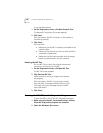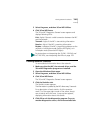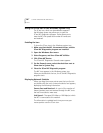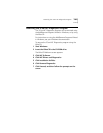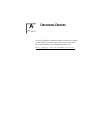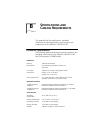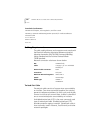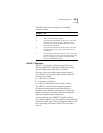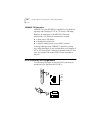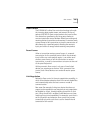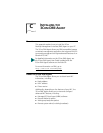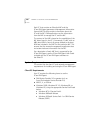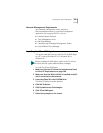
154 APPENDIX B: SPECIFICATIONS AND CABLING REQUIREMENTS
Cabling Requirements
The cable, quality, distance, and connectors must comply with
the Electronic Industries Association/Telecommunications
Industries Association (EIA/TIA) 568 Commercial Building
Wiring Standard and the Technical Services Bulletin
TSB38 standards.
Network connection criteria are shown below.
Twisted-Pair Cable
Twisted-pair cable consists of copper wires surrounded by
an insulator. Two wires are twisted together (the twisting
prevents interference problems) to form a pair, and the pair
forms a circuit that can transmit data. A cable is a bundle of
one or more twisted pairs surrounded by an insulator.
Unshielded twisted pair (UTP) is the most commonly used
type of twisted-pair cable. Shielded twisted pair (STP)
provides protection against crosstalk. Twisted-pair cable is
now commonly used in Ethernet, Fast Ethernet, and other
network topologies.
Standards Conformance
IEEE 802.3x full-duplex, auto-negotiation, and flow control
IEEE 802.1p (General Attribute Registration protocol) for multicast addresses
Microsoft PC98
PCI 2.1 and 2.2
DMI 2.0 and 2.0s
ACPI 1.0
NIC: 3CR990 family
Cable: Category 3, 4, or 5 unshielded
twisted pair
Network cable connector: RJ-45
Transceiver: On-board
Maximum Network Segment: 328 ft/100 m
Speed: 10/100 Mbps
Media Type: 10BASE-T
100BASE-TX



